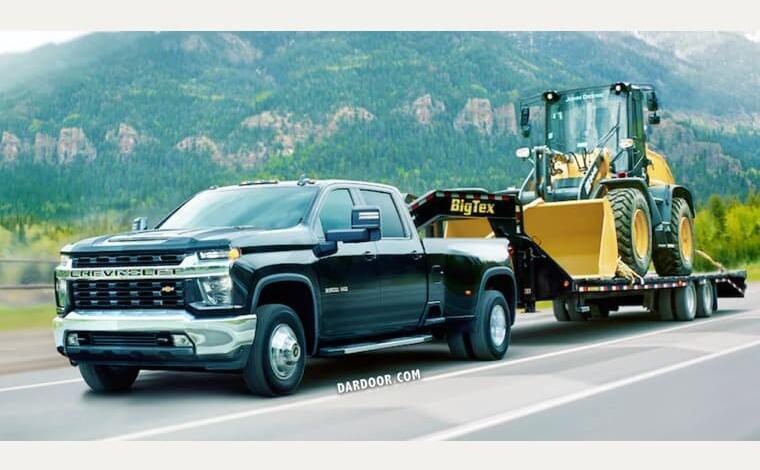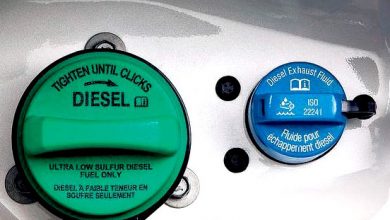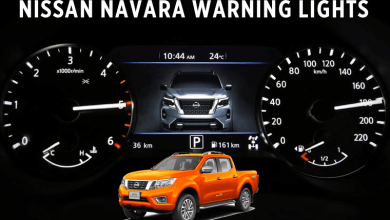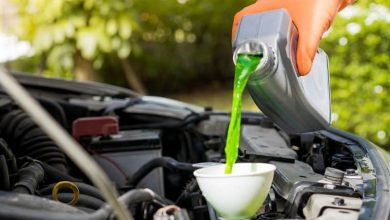
You own a diesel truck because you need the towing force, load capabilities, and solid durability. You love your diesel, but like any mechanical system, it might give you trouble from time to time. During wintertime in Canada, your diesel might suffer some problems caused by the cold temperatures. We’ve listed some of the most common issues that could come up with your truck that can reduce diesel performance.
Diesel Truck Having a Hard Time Starting
When the temperature dips, a few things can happen to your diesel truck engine.
Oil: The first thing to check is your oil. If it is too thick, you might not have the right oil for the cold temperature. Try switching to a cold-weather oil that is lighter like 5W-40 synthetic motor oil.
Battery: If your diesel engine isn’t cranking fast enough, according to your vehicle’s specifications, inspect your battery’s charge and condition as well as all the connections. If the battery is low or you have a bad connection, you could have trouble starting your diesel truck.
Glow plugs: If the crank speed isn’t an issue, you might have something wrong with the glow plug system. This system is in place to help with cold starts. If one or two glow plugs are burnt out, your truck might not seem to have any problems until the cold weather hits. Check your truck’s glow plugs by measuring their resistance or continuity. If they are burnt out, that means they’re too coated in carbon or not receiving the proper voltage they need to start so your truck will have a rough time firing up.
Problems with Diesel Fuel
The fuel in the tank could be responsible for your diesel truck’s woes. Here are some things to check:
Summer fuel in the tank when the temperature drops: When the cold weather comes, the summer-grade fuel in your truck can start to form wax crystals in the water/fuel separator and cause a blockage. If this happens, bring your truck to a warm garage and thaw it out. Once, thawed, you can either add a fuel conditioner or drain the tank completely and refill it with winter-grade diesel fuel. Learn the difference between summer and winter diesel fuel.
Keep in mind that water in fuel (usually caused by condensation) is a problem too. When water gets into the fuel tank, it often sinks to the bottle of the tank and can get sucked into the fuel lines, filter, or water/fuel separator and freeze. You’ll have to thaw it out and drain the tank to clear the blockage.
Fuel isn’t being delivered to the engine properly: For your diesel to start and run correctly, the injector timing must be perfect. Check your truck’s manual for the timing procedure and give your timing marks a quick look to see if they’re lined up. Newer engines might require a diagnostic scan to see the issue, so feel free to bring it into Revolution Motors so we can take a look at it for you.
Other issues that can cause fuel delivery problems include air in the fuel or if you have a worn or clogged pump. If you notice the hard starts are getting worse and you’re losing power, it might be time to replace the pump. First, check the fuel filters. If they’re too clogged they could be making it difficult for your pump to work properly. If the filters are clear, bring in your truck and we can look at the injection pump to ensure it’s clear of air and replace it if necessary.
Lots of Black or White Smoke When Starting Diesel Truck
If you’re noticing intense amounts of black or white smoke at startup, you could have an issue.
Black smoke: If your diesel truck is constantly blowing out black smoke, it means there could be too much fuel, not enough air, or an issue with your injector pump timing. You can check to make sure there is nothing blocking the air intake, like a clogged air filter or damaged intake hose. Exhaust restriction can also be the issue and can be damaging to your diesel performance.
White smoke: If there is not enough heat in the engine to burn the fuel, your diesel truck could blow off some white smoke. If there is a prominent fuel smell coming out of the tailpipe, this might be the case. In this case, the white smoke will stop when the engine warms up.
Other issues that can cause white smoke at startup include bad glow plugs, the air in the fuel system, low cranking speed, faulty injectors and injector timing and/or a worn-out pump.








